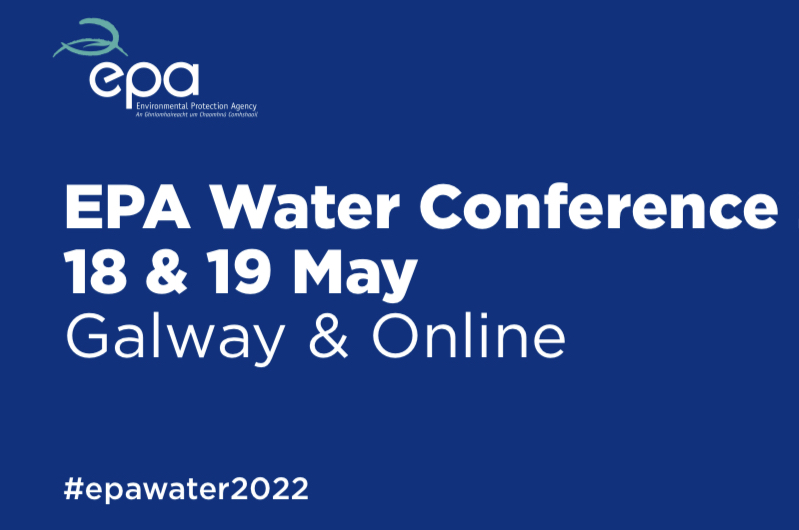The EPA Water Conference 2022 was held on 18 and 19 May, in Galway. This was the first face-to-face EPA Water conference in over two years so it was important that the Water Institute attended in person to reconnect and network with many of its peer stakeholders.
The conference consisted of a range of speakers who shared their knowledge and insights on how to protect and improve water quality in Ireland and showcased progressive water quality case studies from around the country. The speakers covered the state of Ireland’s waters, European and national policy, the development of plans (what kind of plans?), and work on a national, regional, and local scale.
Laura Burke, the Director-General of the EPA, opened the conference by launching the new EPA strategy where one of its key strategic goals is ‘The number of water bodies with high or good water quality will have to be substantially increased by 2026’. Dr Eimear Cotter of the EPA spoke about the quality of water in Ireland and presented the stark fact that the number of High status/pristine rivers in Ireland has fallen from 500 sites to a shocking 20 sites in the last 30 years and stated “we need urgent and efficient action to stop us running fast to standstill on water quality”.
The conference continued with a range of speakers from the Agricultural sector: Dr. Leanne Roche from the Department of Agriculture, Pat Murphy from ASSAP and Gorka Barrio Montoya from the EU who spoke on the state of nitrates and water quality across the EU and how Ireland compares.
The rest of the afternoon continued with in-depth presentations on the Hydromorphology of Ireland and water quality, and case studies were presented by Inland Fisheries and OPW. Along with this, Dr. Anne Nolan of ESRI presented her research on the presence of ecoli. VTEC in water and its links to illnesses and hospital admittances across the population which led to some interesting questions around water quality. Ted O’Reilly, Irish Water asset planning lead then spoke about the current and future wastewater investment needs throughout Ireland.
The next morning’s theme kicked off with session 5: Policy and People where Dr. Hans Bruyninckx presented a very engaging overview of the impact of policy on nitrates over the past number of years and how ineffective it has been. He also spoke about the weather patterns a changing Ireland will be facing in the next number of years. Well, known journalist, Ella McSweeney spoke about the public’s perception of water quality and also about the proactive will among the farming community to take part in research and projects to reduce the impact of climate change on our environment. Sean Corrigan from the National Federation of Group Water Schemes spoke about the different approaches they were taking to integrated catchment management.
Overall the conference was excellent, the panel discussions were good and everyone had an opportunity to ask their questions.
It is clear from the conference that we are moving in the right direction as a nation towards increasing the quality of water in Ireland, but I would question the speed at which we are doing this considering we are facing a national environmental and biodiversity emergency.

